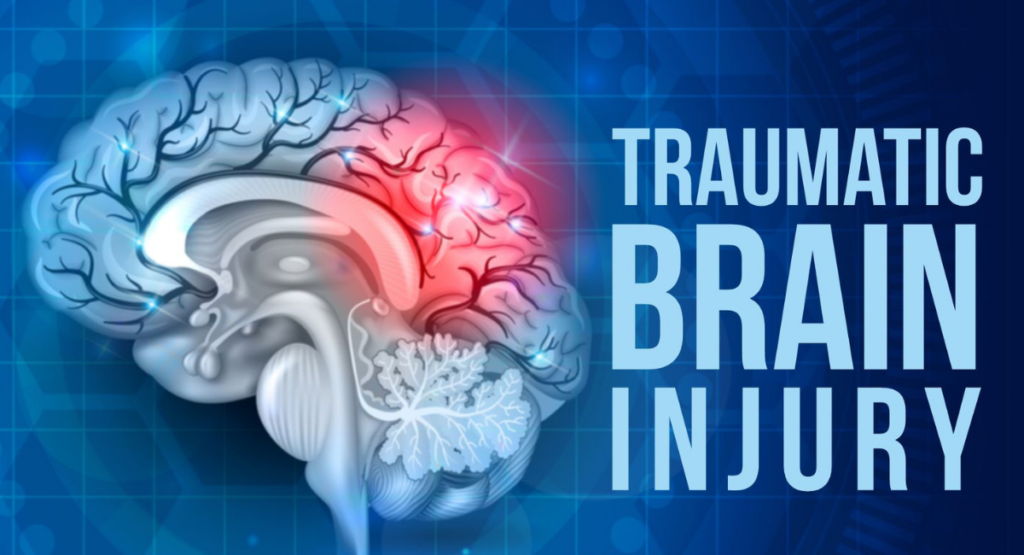Traumatic Brain Injury (TBI) is a complex medical condition that can have profound and lasting effects on individuals and their families. Whether resulting from accidents, falls, sports injuries, or other incidents, TBIs require prompt and appropriate treatment to maximize recovery and quality of life. In this blog post, we’ll delve into the basics of TBI, its symptoms, treatment options, and frequently asked questions to provide a comprehensive understanding of this critical health issue.
What is Traumatic Brain Injury?
Traumatic Brain Injury occurs when an external force disrupts normal brain function. This disruption can range from mild (concussion) to severe, causing significant neurological damage. Common causes of TBI include falls, vehicle accidents, sports injuries, and assaults. It’s essential to recognize the signs and symptoms of TBI to seek timely medical attention.
Causes of Traumatic Brain Injury
TBI can be caused by various factors, including:
- Falls: Particularly common among young children and the elderly.
- Car Accidents: A leading cause of TBI, especially among teenagers and young adults.
- Sports Injuries: Contact sports such as football, soccer, and boxing pose a significant risk.
- Violence: Assaults and gunshot wounds can result in severe brain injuries.
- Explosive Blasts: Military personnel are at risk of TBI due to explosions.
Symptoms of Traumatic Brain Injury:
The symptoms of TBI can vary widely depending on the severity of the injury and the areas of the brain affected. Common symptoms include:
- Headaches
- Dizziness or loss of balance
- Nausea or vomiting
- Confusion or disorientation
- Memory loss
- Mood changes, such as irritability or depression
- Sensory changes, including blurred vision or ringing in the ears
Diagnosis of Traumatic Brain Injury
Diagnosing TBI typically involves a thorough medical evaluation, including:
- Physical examination
- Neurological tests
- Imaging tests such as CT scans or MRI scans
- Cognitive and neuropsychological tests
Early diagnosis is essential for initiating timely treatment and preventing further complications.
Treatment Options for Traumatic Brain Injury:
Effective treatment for TBI often involves a multidisciplinary approach tailored to the individual’s specific needs. Treatment may include:
Medical Management: Immediate medical intervention aims to stabilize the patient and prevent further damage. This may include surgery to relieve pressure on the brain or medication to control symptoms such as pain or seizures.
Rehabilitation Therapy: Rehabilitation plays a crucial role in TBI recovery, focusing on physical, occupational, and speech therapy to improve motor skills, cognition, and communication abilities.
Cognitive Behavioral Therapy (CBT): CBT can help individuals cope with the emotional and psychological effects of TBI, addressing issues such as anxiety, depression, and adjustment to life changes.
Supportive Care: Ongoing support from healthcare professionals, caregivers, and support groups can provide invaluable assistance and encouragement throughout the recovery process.
Conclusion
Traumatic Brain Injury is a serious medical condition that requires prompt recognition and appropriate treatment. By understanding the symptoms, treatment options, and potential outcomes of TBI, individuals and their loved ones can take proactive steps to facilitate recovery and improve quality of life. If you or someone you know has experienced a head injury, don’t hesitate to seek medical attention and support.
Remember, early intervention is key to better outcomes in Traumatic Brain Injury cases. Stay informed, stay safe, and prioritize brain health for yourself and those around you.
We are India’s first comprehensive continuum care provider. We provide multidisciplinary out of hospital care to acute and post-acute and chronically ill patients at our critical care facilities and your home.


